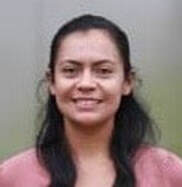Jacob studies literacy and technology, computer assisted language learning, second language acquisition, academic language and literacy, STEM education, and sociolinguistics. She also is a graduate student researcher on CONECTAR: Collaborative Network of Educators for Computational Thinking for All Research: a National Science Foundation Computer Science for All initiative designed to promote computational thinking for multilingual upper elementary students. Jacob is advised by Professor Warschauer.
Garcia is specializing in Teaching, Learning, and Educational Improvement (TLEI). Her research interests include culturally-sustaining pedagogies, learning sciences, design theory, STEM teaching and learning, Ed-Tech, and K-12 education. She is advised by Professors Warschauer and June Ahn. Warschauer, a Fellow of the National Academy of Education, directs UCI's Digital Learning Lab (DLL). His research interests include digital learning, language and literacy, STEM, and learning analytics. Abstract Too often, educators assume that multilingual students come to school without the conceptual or linguistic resources necessary for learning the subjects of science, technology, engineering, and mathematics (STEM). To address this issue, K-12 STEM educational policymakers have called for instructional models that build on language learners’ existing resources, opening new possibilities for computer science education. In connecting an upper elementary computer science curriculum to students’ lives and interests, this qualitative study explores how multilingual students leverage their identities to support disciplinary skills development. Using data from student semi-structured interviews, we find here that multilingual students express their identities through computing and that this expression supports positive social and academic outcomes in the classroom. Comments are closed.
|
Resources for:
|
|




